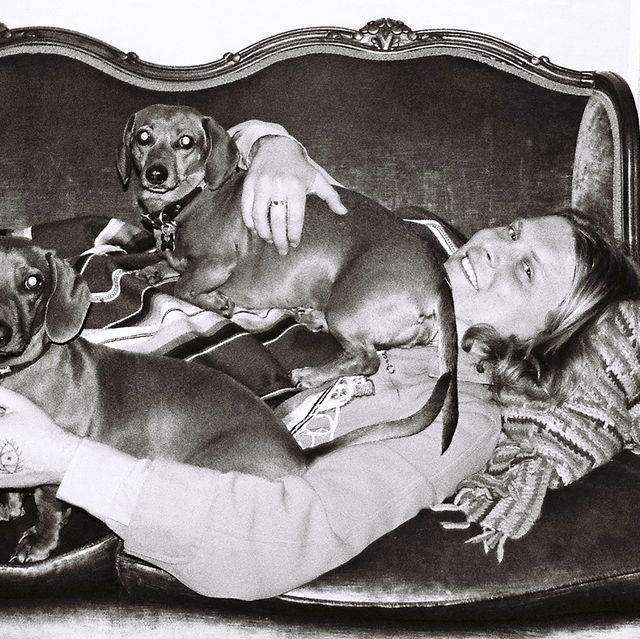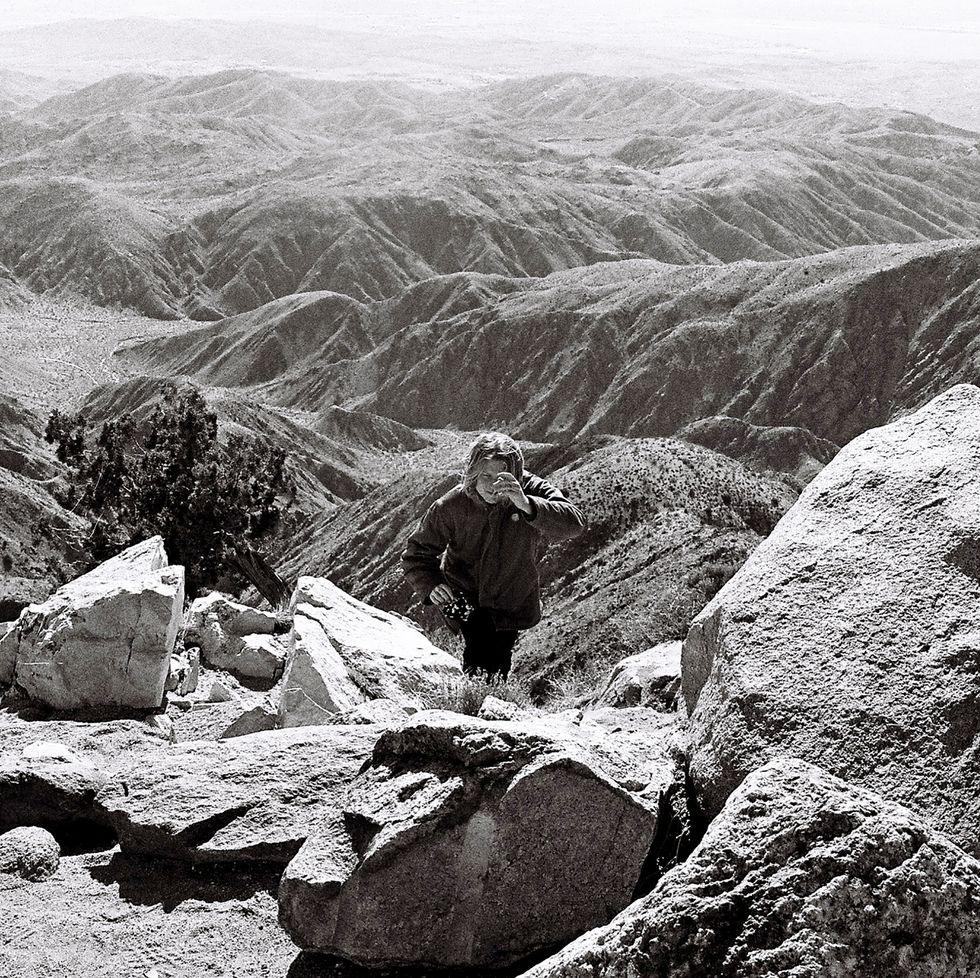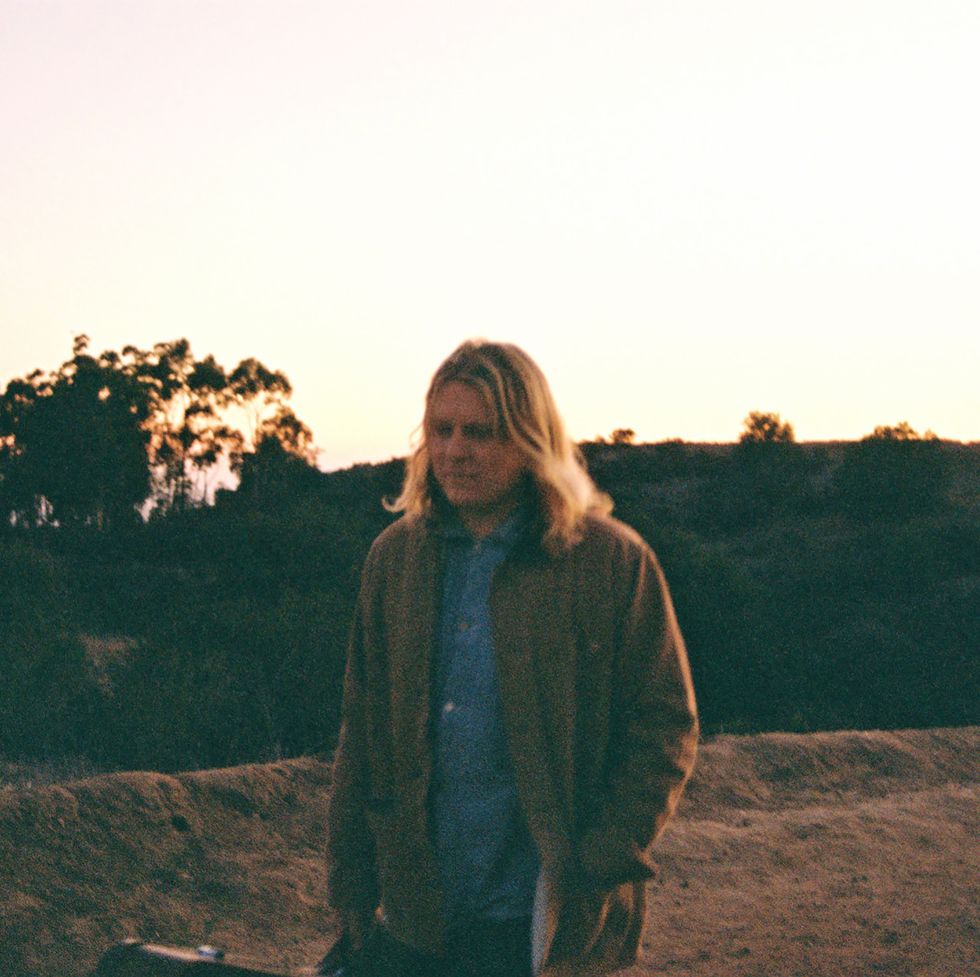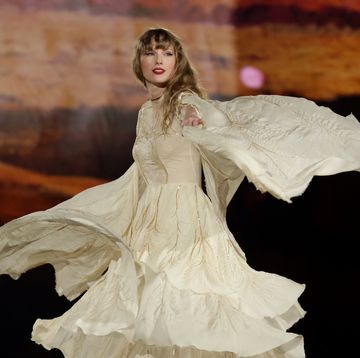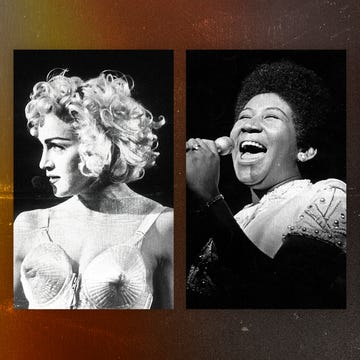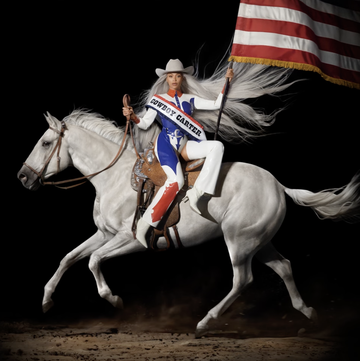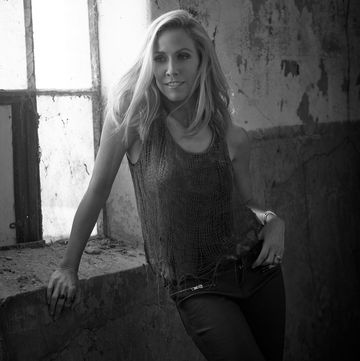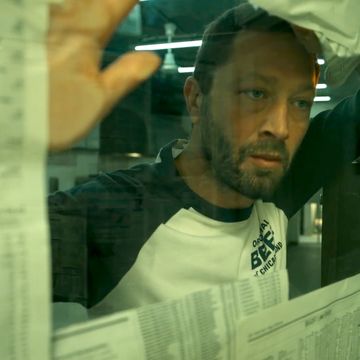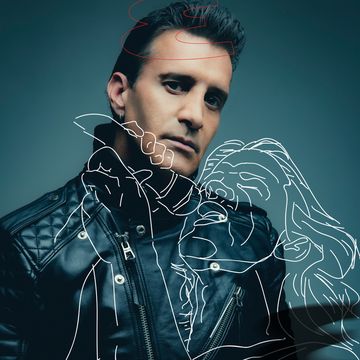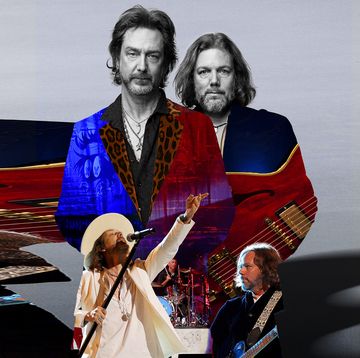Coffee, pastries, a quiet patio at a café in Brooklyn early on a Saturday afternoon in late June, and a conversation with one of the most essential musicians and affable guys in indie rock, Ty Segall. Other than it being a little too hot for only 12:30pm, what is not to like? Well, only the news, and one giant cloud that on this otherwise very sunny day hangs over not so much our meeting, but the country in general. Twenty-four hours earlier, a Donald Trump-packed U.S. Supreme Court did what millions had feared, and struck down Roe vs Wade, the landmark decision which for nearly 50 years had affirmed a woman’s right to an abortion. When the news came down, Ty and his Freedom Band–Ben Boye, Emmett Kelly, and longtime Laguna Beach homies Mikal Cronin and Charles Moothart–were in Philadelphia. A day later, Segall is still, mostly, at a loss for words. “It’s just so sad. And terrifying, and horrible,” he offers. “I didn’t even want to play yesterday. And it’s a hard one. Sometimes I just don’t know what to say.”
The Philly show did go on, as did one hours after our interview, at Brooklyn Steel. While Segall stayed silent on the matter from the stage–he’s long made a point of barely speaking at all during live performances–there was plenty of escapism and fury to be found in the music, for a crowd likely looking for both. “It’s hard to find your place, as a person on stage, with a microphone, because I just want to bring joy to people,” he explains. “I think that’s what people want when they come to our shows. They want some sort of joy or a physical therapy of volume, or a sense of community.” The Freedom Band delivered, with a grab-bag of Segall standouts from over the years, and an emphasis on two LPs: last year’s raucous Harmonizer and a very different, brand-new record, out this week. An album born of a pandemic.
You may recall that 2020 was a year that had us all feeling rather isolated, and Ty and his musician-photographer wife, Denée Segall, were no exception. A year earlier, the couple, along with their dachshunds Fanny and Herman, had relocated from east L.A.’s Eagle Rock neighborhood northwest to Topanga, the boho-minded enclave in the Santa Monica Mountains. Segall–an indefatigable road dog for most of the past decade-plus–had already taken an uncharacteristic break from touring for most of 2019, and was ready to roll back out on the road, for multiple tours, when the virus upended those plans. The couple spent the first few months of the pandemic largely secluded, conditions that prompted Segall to eventually pick up an acoustic guitar–an instrument he’d eschewed in recent years–and write songs about those basics we take for granted, like human connection. The title of the compilation, Segall’s fourteenth studio album, is the deceptively unassuming “Hello, Hi” –written very deliberately in quotation marks.
“It’s a simple sentiment,” Segall says. “A salutation. And just, how nice that is. When you can’t do it. And it’s like, you don’t ever think about it, until it’s gone. Just saying, ‘Hey!’ It’s a simple thing.” Much of the album–intimate both lyrically and musically to a degree that’s nearly unprecedented for Segall–reflects the surreal times in which it was created, the days of wondering, just how long will this be our reality? “If there was an isolated, yearning song about a return to the way things were, that’s it,” Segall says of the record’s title track. “The good parts of life, traveling and seeing people–the way the world was. That’s that song where, I just missed talking to people. Saying hi. It was like, ‘now here I’m in this room, and I’m daydreaming about all this weird shit around me, just, the window and the cement floors. And I just want to say hi. And isn’t that a bummer?’”
“Hello, Hi” is no bummer, but it is a change. Then again, change has been a constant for the restless, chameleonic musician, who, for most projects in a ridiculously large catalog that kicked off with his self-titled 2008 debut, has embraced some concept, theme, or parameters. On 2019’s First Taste it was no guitars, period (a restriction which in no way compromised the record’s volume); on last year’s Harmonizer there was extensive use of that titular device, a pitch-shifter popular with 80’s arena rock bands; there was 2012’s Hawkwind-inspired live band recording, Slaughterhouse; the no-holds sprawl of 2018’s exhilarating, 19-track Freedom’s Goblin; and his most outré venture to date, the madcap baby heads and wryness of 2016 art project-album Emotional Mugger. Segall is loath to repeat himself, and one album is often willfully unlike the one before it. And in its own modest way, “Hello, Hi” is one of the musician’s most radical moves yet, precisely because of its tranquility—a largely internal, reflective record, part cabin fever, part taking stock of life, part just smelling the flowers. It has raucous moments, to be sure, but mostly it’s a product of its time.
“I guess for me, when I pick up an acoustic guitar, and I’m by myself, a certain kind of song just comes out,” he says. “And I didn’t feel like supplementing that song with a different kind of instrument. Or expanding it in any way. So I guess the kind of ‘concept’ of this one is just that process. The songwriting, on an acoustic, and just a voice. And just keeping it raw. I love so many records that are raw, like those classic Dylan or Neil records or whatever, where the vocal take was probably the first take, and it might not be perfect, but it’s real.”
Our Brooklyn chat is the fifth interview I’ve done with Ty, dating back more than a decade, and in that time he’s scarcely aged a day. He still looks like he just stepped out of the ocean and is headed to the garage to set down a surfboard and pick up a guitar. We’ve talked on the edge of a half pipe, on a cruise ship to the Bahamas, in a Lower East Side hotel, and over the phone–and each time he’s been more than willing to nerd out about influences, recording techniques, and some lesser-known gem of a record he’s recently gotten into. These days, no topic gets him more animated than his realization of a longtime dream: building his own professional, three-room home studio, also called Harmonizer.
“We had been planning the studio from, before the pandemic,” Segall recalls. “And then it took a while to get going, [we] started building it, kind of the first year of the pandemic. And it was finished in maybe October of that year?” Advising him on aspects of the build were studio-knowledgeable friends and former collaborators, including Chicago’s irascible legend Steve Albini. “It was really, really fun!” Segall says, adding with a laugh, “And there was a lot of interesting stuff that happened along the way.” In short order, “Hello, Hi” was the studio’s test-run project, primarily done over two months in the fall of 2020, followed early the next year by Harmonizer. He’s even had other artists in to record. “I’ve done a handful of things there already. And I love doing that. I think it can totally hold its weight alongside a modern studio.”
“Hello, Hi” opens with a sunrise-dappled, all-acoustic, all-falsetto prelude called “Good Morning,” and closes, a brisk 35 minutes later, with an unlisted, a cappella coda spelling out the words “G-o-o-d N-i-t-e.” To me, I tell him, the record plays a little like “A Day in the Quarantine Life of Ty and Denée.” He laughs at the take, but doesn’t dismiss it entirely: “Uh, yeah? I don’t know? I don’t like to spell things out that specifically, because I think it takes away from however someone wants to interpret it. But I do think, yeah, I like to bookend it with, ‘Here’s us waking up.’ ‘Here’s us going to sleep.’ So it is a day, maybe? When arranging it, I kind of had that idea, or making it flow in that way.” But while the pandemic undoubtedly contributed to what he calls the album’s “solitary vibe,” he adds, “It doesn’t have to be just quarantine. It can be, honestly, my life at any point, inside of my mind, or whatever it is. I like to think it’s kind of a universal discussion, or growth and of acceptance of yourself. All these things that I always write about.”
Anxieties, insecurities–the 35-year-old has written about them before. And he’s gotten personal. (2013’s Sleeper comes to mind, which along with its liberal acoustics may be the closest cousin in his discography to the new LP.) But “Hello, Hi” finds him in a more fully exposed, singer-songwriter mode than ever. There’s no mistaking any of the lyrics on the record. “You can’t hide behind anything here, which is I think the most uncomfortable part of this record for me,” he says. “But it’s also the thing I like the most about it. I like that there’s no flash or production moves. It just is.”
The album’s middle section rings especially introspective. On the rollicking “Over” he comes to terms with past screw-ups. “I wake up again, and I panic / I think the same things and I can’t change them,” he opens. He’s hoping to begin again, but finally concludes that “All the mistakes I’ve made are why I am me.” “I don’t know how to describe it exactly,” he says now of the track. On the even mellower “Blue,” Segall reminds himself–or someone else, maybe—that “you can’t erase the pain.” And the theme of accountability of is further underscored on a sweet reworking of “Don’t Lie”, the 2009 song by the Bay Area garage pop band The Mantles. Of the concept that unifies the songs, Segall says, “It’s the idea you have to accept who you are, in order to become a better person. Fuck-ups and all. And you can’t change that, you just have to have a good relationship to it.”
Segall relishes contrast, project to project, and the deep breathing of “Hello, Hi” certainly offers that when compared to its intense predecessor, Harmonizer. “Whereas that was the extreme, void of air, electric, harsh, loud thing,” he says, “this record is like, you walk out the door and you’re, in the forest or something, alone, kind of a feeling.” That pastoral mindset is evident on closing track “Distraction”, which at times evokes a Segall all-time favorite, The Beatles’ White Album, and plays like a balm for too much time cooped up: “So sing me a distraction / I want to know what happens / We’ll take a walk outside.”
The LP does have its rock-out moments: a noisy mid-section of “Looking at You”, on which Ty is joined by Boye and Moothart; “Saturday, Pt. 2,” which jams out with Cronin on bleating saxophone; and, especially, the swirling title track. The wild-out fuzz rocker may be more typically of the artist, but he concedes that it’s an outlier on this record, and says its April release as the first single from the album was a bit of a “fake-out move.” “I almost didn’t put it on the record ‘cause I thought it was too rockin’,” he admits. “But then I was like, ‘Why not put one ripper on there?’”
In a live setting, as I found out only hours after our conversation, “Hello, Hi” can be a very different animal altogether. While the Brooklyn Steel show did open with an acoustic section–just Segall and Kelly on guitars, offering quietly affecting renditions of four songs that were more or less faithful to the album–you can only keep Ty Segall unplugged for so long. Soon enough, the duo was joined by the rest of the Freedom Band, for a roaring remainder of the night, eighteen more songs that were open, extended, and often frenzied, with beautifully noisy versions of “Hello, Hi” tracks that were barely recognizable from the LP segueing seamlessly into past thrashers. That they didn’t match the record didn’t matter much to the audience—the tour ended, curiously, two weeks before the set’s debut.
Segall doesn’t have much use for music business conventional wisdom, including the “rule” that says you don’t tour a record before it’s released: “I just can’t care about that anymore, because it’s just so much more rewarding to play the new songs,” he says. “And I like the idea of playing songs that nobody knows! Cause then you get a real gauge of whether it’s a good song or not.” He and the band are working with a skeleton of songs from “Hello, Hi” this summer, around which they flesh out an ever-changing set list. The Brooklyn show was heavy on tracks from Emotional Mugger; on other nights he’s dipped back into older albums including 2010’s Melted and 2011’s Goodbye Bread. And more often than not his songs when played live are deliberately notfaithful replicas of the recorded versions.
“I just don’t have any interest in that,” he flatly states. “It has to be fun, and that’s just not a rewarding way to tour. And I love going to see bands who are rearranging their songs! But then all of a sudden, you’ll go and see them another time, and they do play it the exact way it is on the album. And then it’s, ‘Wow, cool. You pulled a fast one on me!’ Not like that’s the idea–of pulling a fast one on everybody—but it is the idea of keeping it fresh and new and different, every time we try to play something.” And we may yet hear more of “Hello, Hi” in an unplugged setting–Segall recently announced a string of solo acoustic shows in November. “To play a streamlined set where it’s all acoustic stuff is, in a way, the same kind of thing as having a set where every song is completely different,” he explains. “It’s just the idea of not feeling like you are supposed to play anything a certain way. Or have a set be any type of thing.”
Segall long played by his own rules, and as time goes on, he pushes himself further outside of his musical comfort zone. Two years ago, he scored his first film–Whirlybird, a wild documentary about erstwhile helicopter-flying, ambulance-chasing L.A. television news reporter Zoey Tur–its soundtrack was released this year. And his wish list of down-the-line projects includes an a melodic noise record, an orchestral LP, and an all–a cappella release.
But all in time. There’s no rush. The man who once might put out three albums in a year is seriously over being called “prolific”. There may be no single adjective that’s been used more to describe Segall by music writers over time–myself included—and there’s no denying he’s released a ton of music. But it’s understandable that it’s become his bête noire. “I think the ‘prolific’ thing just greatly reduces each album, in a way,” he explains. “You know? Which I think is a drag. So I’m trying to make it be like, “No. Every album is very intentional. This isn’t just me throwing shit together. And honestly, I’m just so sick of ‘prolific’ that I’d rather put out way less and try to get away from that label.”
We wind down our conversation talking about artists who have gone off the reservation, and paid for it–the head-scratching, tepid reaction to Drake’s recent foray into dance music being one example. Segall is firmly in the “go for it” camp. “People should do whatever they want,” he insists. “It’s the coolest thing ever. Like, I love the idea of an artist that maybe I might not be into for like, the first ten years of their career, all of a sudden putting out an album and I’m like, ‘This record rules!’ Do you know what I mean? That’s pretty awesome. That’s pretty exciting. So I like that idea, that anybody at any point could do anything. Why not? That’s what they should be doing. You know?”
